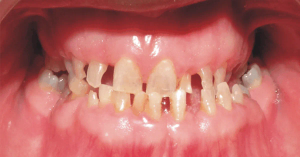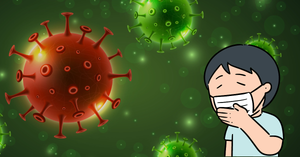Cold sores, also known as fever blisters, are small, painful blisters that commonly appear on or around the lips. These blisters are caused by the herpes simplex virus (HSV-1), and while they can affect people of all ages, children are particularly vulnerable. Understanding what causes cold sores, the symptoms to look out for, and how to manage them can make a big difference in helping your child feel more comfortable.
What Are Cold Sores?
Cold sores are fluid-filled blisters that usually form around the lips but can also appear on the nose, chin, or inside the mouth. They typically start as a tingling sensation, followed by the development of painful sores. Though they heal in about 7 to 10 days, cold sores can be quite uncomfortable, especially for kids.
Who Is More Prone to Cold Sores?
Children with weaker immune systems are more likely to get cold sores. Once a child is infected with the herpes simplex virus, it remains in their system, often lying dormant for months or even years. Certain triggers like stress, fatigue, illness, or sun exposure can reactivate the virus, causing a cold sore to flare up.
Causative Factors of Cold Sores
Cold sores are primarily caused by the herpes simplex virus type 1 (HSV-1). This virus is highly contagious and is often spread through direct contact, like sharing utensils, towels, or kissing. Some common triggers for cold sores in children include:
- Stress or anxiety: Emotional stress can weaken the immune system, allowing the virus to reactivate.
- Illness or fever: A cold or the flu can prompt an outbreak.
- Sun exposure: Prolonged exposure to the sun’s UV rays can trigger cold sores.
- Physical trauma: An injury near the mouth can lead to a cold sore flare-up.
Symptoms of Cold Sores in Kids
Cold sores can be easy to spot once they start developing. Here are the typical symptoms to watch out for:
- A tingling, itching, or burning sensation around the lips or mouth area
- Small, painful blisters that burst and form a crust
- Swollen and red lips
- Mild fever or swollen glands in some cases
- Discomfort when eating or drinking
Managing Cold Sores in Kids
Once a cold sore is identified, it’s essential to take action to ease your child’s discomfort and prevent the sores from spreading to others. Here are some effective management tips:
1. Over-the-counter ointments: Topical creams containing antiviral ingredients can help speed up the healing process.
2. Cold compresses: Applying a cold, damp cloth to the sore can reduce swelling and alleviate pain.
3. Avoid triggers: If your child’s cold sores are linked to certain triggers, like sun exposure, make sure they use lip balm with SPF when outdoors.
4. Pain relief: Over-the-counter pain relievers like ibuprofen or acetaminophen can help ease discomfort.
5. Good hygiene: Teach your child not to touch or pick at the sore, as this can spread the virus. Encourage frequent handwashing.
Preventing Cold Sores
While there’s no permanent cure for cold sores, there are ways to reduce the frequency of outbreaks:
- Boost immunity: Ensure your child is eating a balanced diet, getting enough sleep, and staying hydrated to keep their immune system strong.
- Use sunscreen: Apply sunscreen to your child’s lips when they’re outdoors to prevent sun-induced outbreaks.
- Avoid sharing: Teach your child not to share food, drinks, or personal items like towels with others.
Conclusion
Cold sores can be a painful and frustrating experience for kids, but with proper management and preventive measures, you can help minimize their discomfort and reduce the likelihood of future outbreaks. Understanding the symptoms, causes, and ways to manage cold sores empowers you to care for your child’s well-being and keep them comfortable through these episodes.








